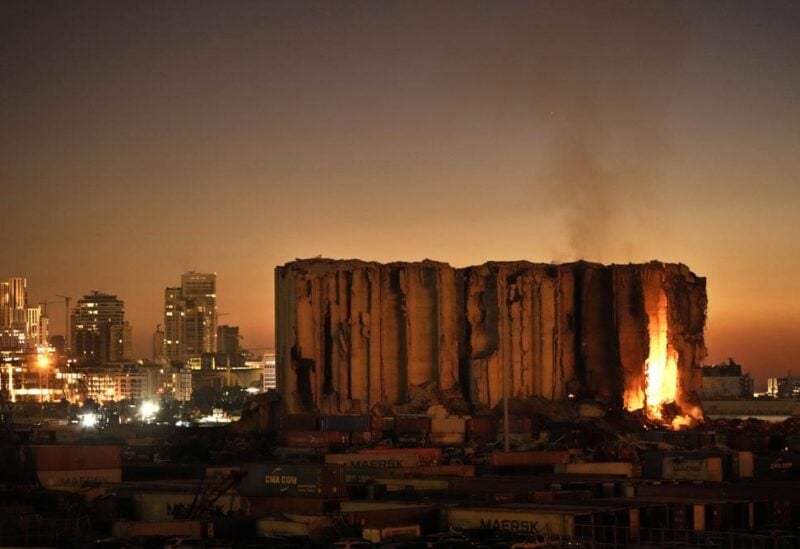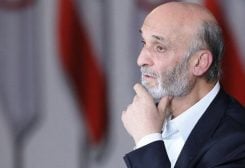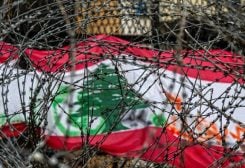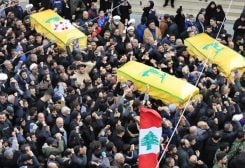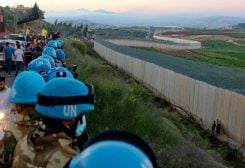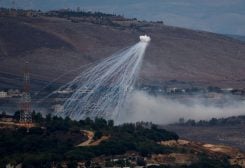Paul and Tracy Naggear have lived in grief since the massive explosion that tore through the Lebanese capital in 2020 killed their three-year-old daughter, and their anger boils over the stalled investigation.
The August 4 mega-blast, blamed on a fire that ignited tones of ammonium nitrate fertilizer haphazardly stored for years at Beirut harbor, was one of the largest non-nuclear detonations ever recorded.
It destroyed thousands of homes, including the couple’s apartment which overlooked the harborside. Their daughter Alexandra was one of the youngest among the more than 200 people killed, AFP reported.
Failed attempts to hold accountable the state officials whose negligence is widely blamed for Lebanon’s worst peacetime disaster have made Alexandra’s death even more bitter.
“Our sadness is not the same, it keeps growing, because as time goes on, we miss Alexandra and feel her absence,” said Tracy, 36.
“Although we can learn to live with sadness, there is an anguish and anger that continues to grow” in the absence of justice, she told AFP in the lead-up to the tragedy’s second anniversary on Thursday.
Paul and Tracy moved out of Beirut and settled in the mountain town of Beit Mery, 10 kilometers (six miles) away following the blast.
The walls and shelves of their home are adorned with pictures of Alexandra.
Like hundreds of relatives of blast victims, they have received no answers from those at the top. And with investigations stalled, not a single official has been put on trial.
“In the beginning, we were hopeful” about the fight for justice, Tracy said. “But now we feel that we are alone.”
The port blast — which was heard as far away as the island of Cyprus — briefly reignited public anger against a ruling class that had already flared in a 2019 protest movement.
The demonstrations were drained of momentum by a severe economic crisis and the coronavirus pandemic, before the monster explosion presented a stark reminder of the negligence of the country’s leaders.
In the wake of the disaster, Lebanon’s ruling elite drew even more public ire by interfering in a local probe that aimed to pinpoint culpability.
The lead investigator, Tarek Bitar, who was chasing after some of the country’s top brass, has been barred from proceeding by a series of lawsuits filed by political leaders since last year.
The lawsuits against Bitar are part of a wider campaign spearheaded by the Iran-backed Hezbollah movement which has called for his replacement, accusing him of bias.
“It is exhausting to live in a country that lacks justice,” Paul said, a painting of his daughter raising a Lebanese flag during the 2019 protests on a shelf behind him.
“The criminals won’t prosecute themselves,” he added.
For the bereaved father, justice can only be served through an international fact-finding mission — a demand of many relatives and rights groups.
The stalled domestic probe has been coupled with a decline in public mobilization, as only relatives of blast victims still join demonstrations calling for accountability.
“Unfortunately, we feel as though people have either lost hope or become lazy,” Paul said.
‘Until death’
Parliament member Melhem Khalaf, a former Beirut bar association head, has tried to fight the official impunity.
During his time at the helm of the Beirut bar, the association helped 1,200 families affected by the explosion to file lawsuits against the state.
But both domestic and external factors have hampered official investigations.
Khalaf said international powers have yet to provide Lebanon with satellite images or reports drafted by foreign experts who participated in preliminary investigations.
Back in Beit Mery, the living room is filled with pictures of Alexandra — as well as with the belongings of Tracy’s infant son Axel, who was born in March.
Tracy took Axel to a protest organized by victims’ families last month.
“August 4 will be a big part of his life,” Tracy said of her son.
“We will fight for truth and justice until the day we die. But if we die before, I would want Axel to carry on the cause.”



